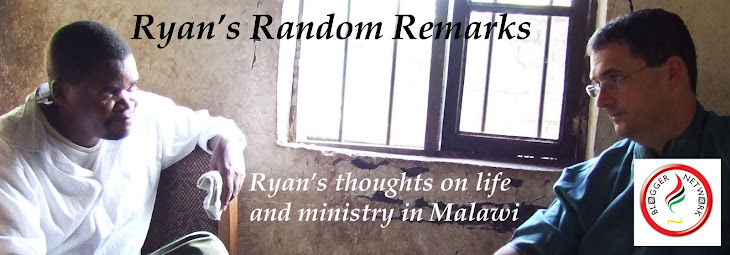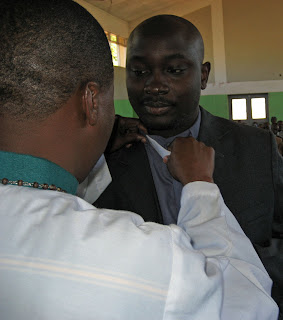Merriam Webster’s online dictionary defines Stereotype as:
something conforming to a fixed or general pattern ;
especially : a standardized mental picture that is held in common by members of a group and that represents an oversimplified opinion, prejudiced attitude, or uncritical judgment
I was surprised the other day to find one of my online Malawian friends making critical statements about an article. This particular friend does not usually react this way, even when his favorite football team is losing! On his Twitter feed he posted, “This article is full of lies … this is really disgusting.” He also repeated another friends’ comment, “Disgusting article, Malawians are not this irrational?!” I was wondering what was drawing all of the ire and followed his link. The
article is from the British newspaper the Guardian, which I understand to be a reasonably reputable paper. It’s about Madonna and her attempt to adopt a second child from Malawi.
As I read the article, I was impressed by the leg work that the reporter had done. He had been to all the right places and spoken to all the right people. His work is not only to write the article, but to also produce a documentary on the ‘real story’ behind Madonna’s plans to adopt. I see his problem as twofold. For one, even though he had conversations with the right people, he didn’t seem to have the right cultural grid through which to interpret the information from his interviewees.
Culture permeates every aspect of our lives whether we are conscious of it or not. Verbal communication, nonverbal communication, even the categories in which we think are all affected by culture. An action as simple as eye movement can communicate different meaning depending on your cultural grid. A pastor from Zambia once told about his experience as a boy confronting cultural differences. As a boy at home, when he did something wrong and his mother lectured him, she would tell him, “Don’t look at me when I am lecturing you.” When he went to town to the secondary school he had a foreign teacher who one day began lecturing him about something that he had done wrong. His natural reaction was to stare at the floor as he was being lectured. The teacher did not appreciate this and told him, “Look at me when I speak to you.” Nonverbal actions can be understood differently by two different people with two different cultural backgrounds. One culture interpreted looking away while being lectured as a sign of respect while the other interpreted it as disrespect. The reporter seems to have interpreted some things as truths that were probably not. Malawians can tell you what they think you want to hear so that you will be pleased. You have to be able to recognize when this is happening.
I believe the reporter’s second problem has to do with stereotyping or generalizing. As humans, we are always categorizing. We do it in order to make sense of our world and so that we know how to act. If I drive to a city that I have never been to before and a vehicle with flashing lights comes up behind me I know how to act. Even though I have never seen the specific vehicle before, I know from my pre-established categories that this is the police and my appropriate response is to pull off to the side of the road. We do this with people as well. As we interact with groups of people, we begin to develop categories or generalizations about them; nurses are nice, doctors are intelligent, construction workers are tough etc. The problem with these generalizations, if they are not well tested over time, is that they can be inaccurate and based on interactions with only a few. The other danger that can happen is that once someone establishes a category they get stuck with it. Any new information is ignored as it does not agree with the category. I know a man who has lived in Malawi his whole life. He told me that all Malawians are dishonest. When I told me that I knew some who I believed were honest, he told me that I simply did not know them well enough. In time, I would see the truth. That is a sad place to be. I believe that in the reporters interaction with a few he has made some broad generalizations or stereotypes that are inaccurate and this is what has drawn the reactions from my friend and others.
As missionaries, we have to constantly be on our guard to not develop unhealthy generalizations or stereotypes of the people we have come to serve. As I get to know people and they begin to ask me for things or money I can conclude that Malawians are only interested in knowing me because of what I have. I need to look deeper into the issue of the role of finances in relationships. If people stop coming to my Bible study I can conclude that Malawians are not committed. I may need to look deeper into conflicts that exist, the time of my study, the topic of my study or the way that I am teaching. If I see many men sitting under trees during the day, I may assume Malawians are lazy. I need to try to understand issues well and constantly review my categories.
If I hold onto negative categories too strongly, they can prevent me from developing relationships. I begin to see everyone I meet as part of a group rather than looking at them as individuals that may or may not fit the categories I have established. Luckily, God was able to look past the general truth that man stands condemned and offer to have a relationship with individuals. May we look past the categories we have established about people different from ourselves and develop relationships for the kingdom.













 Read story here
Read story here

















